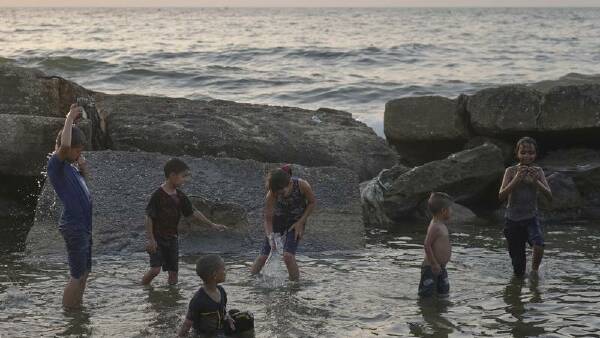
Hamas has agreed to a proposed 60-day ceasefire with Israel, as confirmed by an official source from Egypt. The deal includes the release of half the hostages held by Hamas in Gaza, along with the release of certain Palestinian prisoners by Israel. Senior Hamas official Basem Naim announced the group’s acceptance via Facebook, stating, “The movement has handed over its approval to the new proposal presented by the mediators.”
While Hamas has accepted the proposal, there has been no immediate response from Israeli officials. According to the Egyptian source, the agreement stipulates a halt to Israeli military operations for the duration of the ceasefire and outlines a pathway to a comprehensive resolution to the ongoing conflict, which has persisted for nearly two years. Notably, this proposal closely resembles an earlier one introduced by U.S. special envoy Steve Witkoff, which was previously accepted by Israel.
As tensions rise, concerns grow regarding Israel’s plans to seize control of Gaza City. This has prompted widespread protests in Israel, with tens of thousands participating in demonstrations over the weekend, calling for an end to hostilities and the release of the remaining 50 hostages taken during the Hamas attack on October 7, 2023. Current Israeli assessments suggest that approximately 20 hostages are still alive.
Amid these developments, Egyptian and Qatari mediators are intensifying efforts to finalize a ceasefire deal. Thousands of Palestinians have fled their homes in eastern Gaza City, where heavy bombardment continues, seeking refuge in the west and south of the territory. Israeli Prime Minister Benjamin Netanyahu has described Gaza City as Hamas’ final major stronghold. Despite Israel currently controlling about 75 percent of Gaza, military officials warn that an expanded offensive could endanger the lives of remaining hostages and lead to prolonged guerrilla warfare.
The humanitarian situation in Gaza remains dire. Many Palestinians are calling for protests demanding an end to the devastating war, which has resulted in significant destruction and a humanitarian crisis. Residents are urging Hamas to engage in more talks to prevent an imminent Israeli ground offensive.
In Gaza City, civilians are deeply concerned about the potential consequences of an Israeli incursion. Dani Miran, whose son Omri was taken hostage on October 7, expressed his fears, stating, “I’m scared that my son would be hurt.” Reports from Gaza indicate that an Israeli ground offensive could displace hundreds of thousands of people, many of whom have already experienced multiple displacements during the conflict.
The Palestinian shelter manager Ahmed Mheisen in Beit Lahiya, a suburb of Gaza City, noted that 995 families have recently fled to the south. He emphasized the urgent need for emergency shelter, estimating that 1.5 million tents are required, while only 120,000 were permitted into the territory during a ceasefire earlier this year. According to the UN humanitarian office, the need for emergency shelter items has reached 1.35 million people in Gaza.
As residents of Gaza City seek refuge, one resident, Mousa Obaid, shared his struggles: “I do not want to keep moving left and right endlessly. There is no life left, and as you can see, living conditions are hard, prices are high, and we have been without work for over a year and a half.”
The most recent round of indirect ceasefire negotiations ended in a stalemate in late July, as both sides exchanged blame for the breakdown. Israel maintains that it will agree to cease hostilities only if all hostages are released and Hamas disarms—a demand that has been firmly rejected by the group until a Palestinian state is established. A Hamas official reiterated on Monday that the group will not comply with Israeli demands to disarm or expel its leaders from Gaza.
As the situation continues to evolve, the international community remains watchful, hoping for a sustainable resolution that can alleviate the suffering of those affected by this prolonged conflict.





